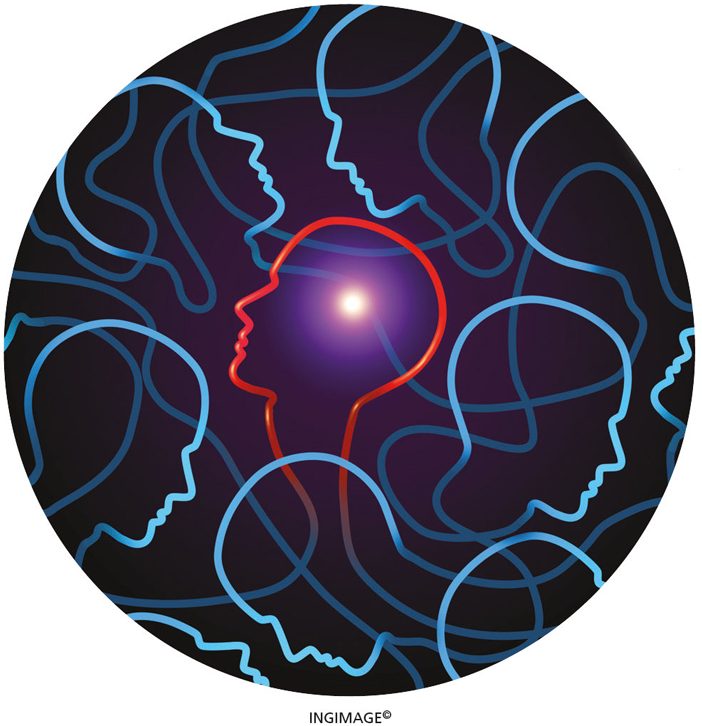SOCIAL INTELLIGENCE
Generally, when we analyse the hallmarks of socially successful people, the obvious is what’s noticed – their many friends, widespread networks and busy social life, which others envy. But on looking beyond the obvious, one discovers elements that are rarely acknowledged – e.g. interpersonal habits, which are mostly responsible for why these people have meaningful relationships.
TERMS OF ENGAGEMENT
Archana Law knows what we need to be socially successful
In a world where technology is increasing our capacity to connect with people across the globe, it’s also diminishing our ability to effectively connect with others in person. Much like learning how to cook, develop software or play sport, the ability to connect with others is a skill that will help us to be more successful in every aspect of life.
It’s been seen over the years that many exceptionally intelligent people struggle to maintain a social life. One organisation had to let a new CEO leave after only seven months because he was purely command and control. Though his resume had been spectacular and he had performed well at interviews, the company’s management began receiving push backs from staff within a week or two. They had hired a first-rate economist with zero social intelligence.
Another example is that of Kim Peek whose life inspired the hit movie Rain Man. Peek is believed to have had an exceptionally sharp memory, which enabled him to literally scan through books – he read two pages at a time with his left eye reading the page on the left and the right eye going over the other page simultaneously!
In spite of his skills however, Peek avoided human interaction for most of his life and latterly communicated only with his father.
Exceptional intelligence and social intelligence don’t necessarily go hand in hand – they’re very different.
Social intelligence is very different from academic ability; it can be defined as the human capacity to decode what’s happening in the world and respond to it appropriately while acting wisely when maintaining human relations. It also enables individuals to notice the distinctions between themselves and others with sensitivity and respect.
We come into contact with different people every day. If we’re not careful, our emotional frustrations while meeting others with different social and psychological characteristics will either project us as unfriendly or make us feel uncomfortable. Social intelligence teaches people the skills needed to address individual differences positively instead of avoiding them. Effective conflict resolution, successful negotiations, and enhancing personal and professional relationships are the foremost objectives of social intelligence.
Here are some guidelines on how to develop social intelligence.
LISTEN Those who are great with people don’t necessarily have the gift of the gab but are good at listening in order to understand others better and strengthen relationships. Most other people love talking about themselves so listening allows leaders to focus on the personal aspect in a conversation.
ENGAGE You are bombarded with distractions that compete for your attention. Making eye contact with the person you’re speaking to is an outward expression that you are confident and fully engaged with him or her.
CELEBRATE When someone shares great news with you, instead of dismissing it, sharing good news of your own or even bashing their good news, celebrate theirs by being genuinely excited for them.
OBSERVE Life is hard for many and some are even good at hiding it – they give the impression that everything is fine. By simply observing another’s body language, behaviour and facial expressions, you will gather insights into how things really are.
PRAISE One way to bring out the best in someone is to praise his or her strengths. Not only does this project confidence on your part but also results in a tremendous boost of confidence for the other person.
MANNERS It’s easy to connect better with someone who has good manners. The simple ‘please’ and ‘thank you’ we learnt as children can go a long way.
POSITIVITY Negativity is contagious and can spread quickly. So refuse to be that person who transmits negativity by complaining all the time.
SEE GOOD Develop the skill to see good in others. It’s human nature to put others down in order to make ourselves feel better but be that person who can spot the diamond in the rough especially when they can’t see it themselves.
Leaders who have to accomplish goals through other people could torpedo their organisations if they fail to navigate relationships. You can be a brilliant innovator, problem solver or strategic thinker but if you can’t inspire and motivate, build relationships and communicate powerfully, your talents will get you nowhere.






